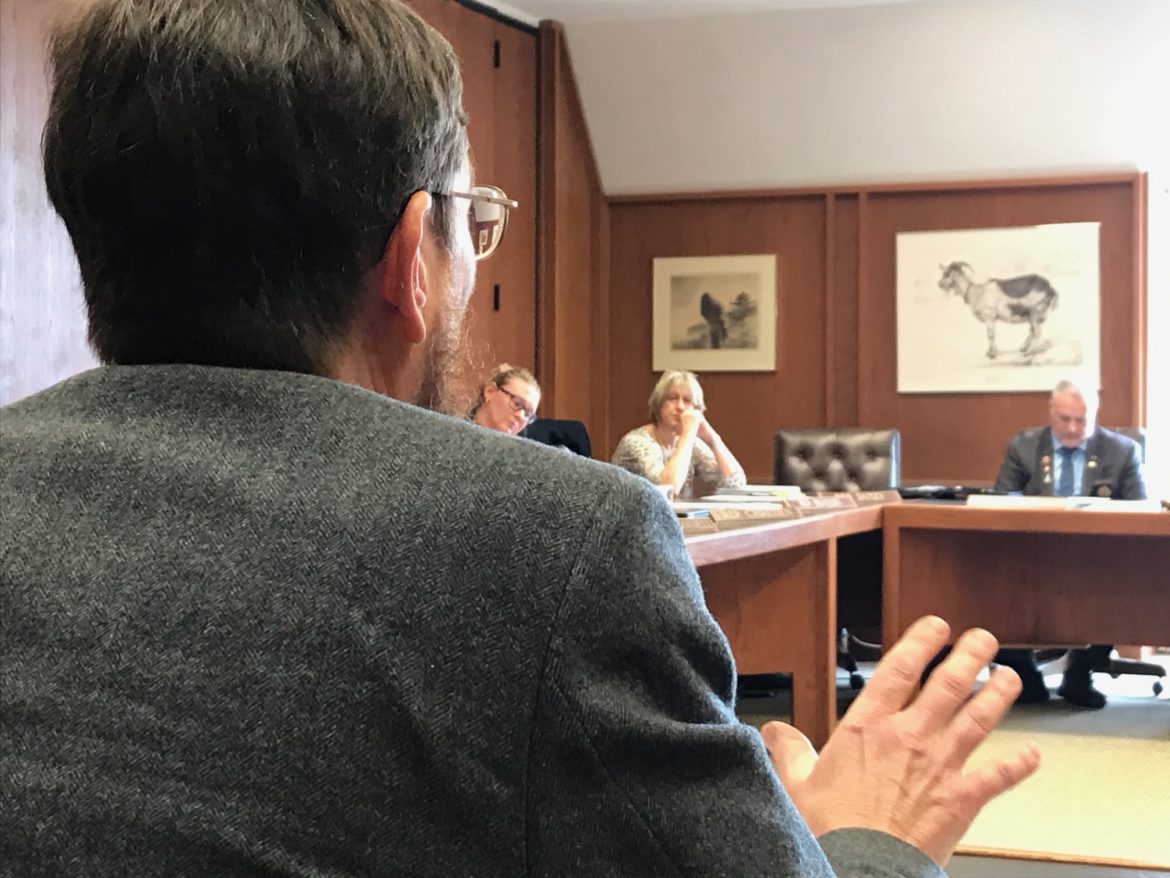By GARRY RAYNO, InDepthNH.org
CONCORD — A House committee wants to revamp the state’s animal cruelty laws and create a fund that would pay for the care of seized animals in abuse cases.
At a public hearing Tuesday, dog owners, breeders, animal rescuers and others generally agreed with what the House is trying to do, but not everything.
The proposal would create a cost of care fund by increasing the license fee for dogs. Individual dog licenses would increase 50 cents and a group license for five dogs or more would increase by $2.50, with most of the additional money going into the fund.
The sponsors said the fund would be administered by the Department of Agriculture and would be used to help cities and towns that have to cover the cost of care for animals seized in abuse cases.
Some people attending the hearing asked the committee to ensure money from the fees that currently supports the diagnostic laboratory continues to do so when the fees are increased.
The proposal which would be added to Senate Bill 77, would create an exception for breeders of cats and ferrets from being licensed if they do not meet the definition of commercial breeder, and would require a health certificate for all dog, cat or ferret sales or transfers.
Senate Bill 77 passed the Senate unanimously earlier this session and would require an initial court hearing within 14 days of animals being seized.
Under the bill the court could order anyone convicted of cruelty to pay a $2,000 bond per animal or lose ownership.
Also anyone convicted of animal cruelty would be banned from owning animals for five years.
The bill tries to address the issues that surfaced after dozens of Great Danes were seized at Christina Fay’s large Wolfeboro home two years ago.
The cost of caring for the 84 dogs seized was over $2 million. Wolfeboro would have been liable for the care if the Humane Society of the United States had not stepped in to care for the dogs. Fay was ordered to repay the society.
The prime sponsor of SB 77, Sen. Jeb Bradley, R-Wolfeboro, said the bill attempts to speed up the court process to avoid a repeat of the lengthy kennel stay that occurred in the Fay case.
The changes proposed by the House committee are refined from several bills the committee decided to retain until next session, including creating the cost of care fund.
Those speaking at the hearing supported the fund, with several people saying if anyone cares for dogs they should support the fund.
But others were concerned the threshold for licensing a commercial breeder is too high and does not address unlicensed breeders who are responsible for most of the abuse cases.
Heather Faria of the NH Federation of Humane Organization said the threshold of 50 puppies and 10 litters a year is much higher than surrounding states.
“Breeders form surrounding states set up here after they run into problems in other states,” she said.
Lindsay Hamrick of the Human Society of the United States said the limits “are astronomically high and unenforceable.”
She suggested the number of puppies be reduced to 20 a year, which she said is still higher than surrounding states.
The numbers have been the same for some time, Hamrick said, but the most expensive cases are unlicensed breeders.
But several breeders disagreed saying they believe the threshold is where it should be.
While the bill attempts to shorten the time before a preliminary hearing occurs in the court, cruelty cases are still likely to take six to nine months for the first hearing and then another six to nine months for an appeal, Hamrick noted.
Tyler Clark representing the NH Veterinary Medical Association said the organization was pleased the committee is reinstating the health certificate requirement which was dropped from the law a couple of years ago during the budget process.
But he said his organization believes some of the amendment’s language needs to change to ensure the diagnostic lab receives the 50 cents from every dog license it currently receives.
The NH House Environment and Agriculture Committee is scheduled to decide on its recommendation for SB 77 April 30 at 10:30 a.m.
Garry Rayno may be reached at garry.rayno@yahoo.com





